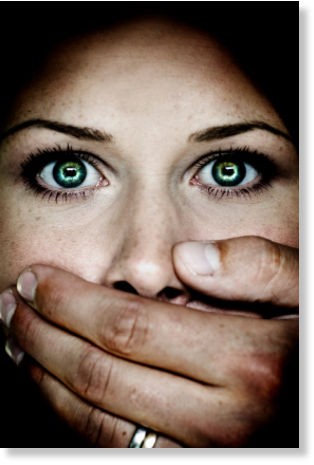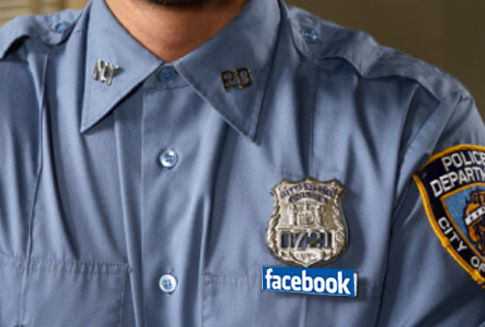
© unknown
He "threatened me," "strangled me with a PlayStation cord," "lunged at me with a pocketknife." A horror movie? No, real life for far too many young women,
an exclusive new Glamour survey reveals. Why is relationship violence still so frighteningly common in 2011? And how can we help? The answer starts with two simple words:
Tell Somebody.
Not long before sunrise on a Midwestern Friday, college student and part-time waitress Alexandra Briggs sat in her one-bedroom apartment, meticulously applying thick makeup all over her face, neck and arms. It took two coats to cover her boyfriend's teeth marks and the cigarette burns he'd inflicted, along with her newly purpling bruises; her pants hid the spot on her thigh where he'd stabbed her with a fork. When she finished, he drove her to the Original Pancake House for her 7:00 a.m. shift. "I'm sick," she told her boss as she clocked in and headed to the restroom.
Briggs, a freckled, blue-eyed Beatles fan who was studying criminal justice, had first chatted with Matthew Hubbard over Instant Messenger five months earlier. After their first date, she hadn't been interested, but when Hubbard, a fellow student, begged her to give him a chance, she did.
By that morning, she was barely a whisper of herself. As Hubbard would later admit in court, before Briggs had gone to work he'd hit her repeatedly with a small bat and strangled her until she slumped, unconscious -- typical of the violence that had started a month into the relationship. "He had me in a choke hold against the wall, saying, 'I'm going to kill you. No one will find your body; no one cares about you,'" Briggs, now 26, recalls. Dazed, she had agreed to Hubbard's order to go to work, fake the stomach flu and return home with him. She was huddled over the toilet when her manager, Shea Duymovic, pushed her way into the stall and sat on the floor. "Look at me," Duymovic said, her face next to Briggs'. "I know what he's doing to you. And I can't stand to see this happen anymore."
A moment passed. When Briggs finally turned, she saw her boss's eyes filled with tears. She remembers thinking one simple thought:
Someone cares? Overwhelmed, she began to sob. "Do you want me to call your parents?" Duymovic asked gently. Briggs could only nod.


Comment: To better understand the topic of abuse against women, and why abused women stay with abusive men- we encourage you to read, Women Who Love Psychopaths by Sandra Brown, M.A..